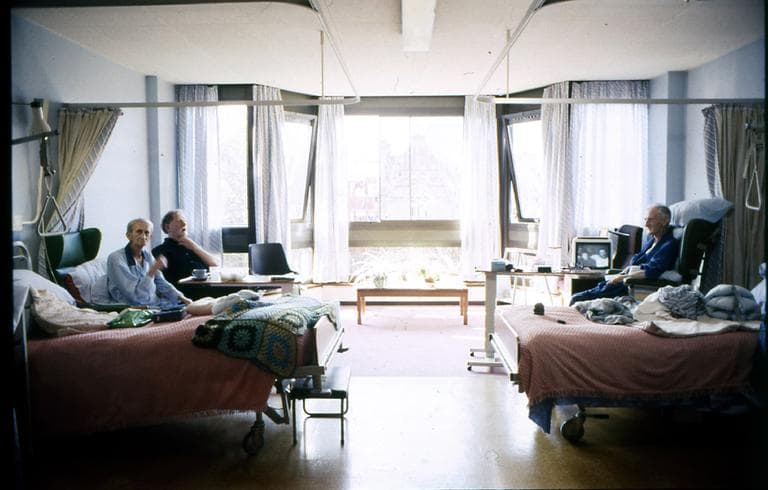Advertisement
Many Patients Don't Get Their Wish To Die At Home
Resume
A majority of people say they want to die at home surrounded by loved ones, but more than 70 percent of us die in hospitals and other institutions, often with tubes inserted into our bodies.
Even though studies show that end-of-life conversations between doctors and patients lead to a more dignified death with fewer costly interventions, theses conversations are still rare. Though the use of hospice has increased, 37 percent of patients in Massachusetts don't receive hospice care until the last week of life, often too late to attend to all the needs of the dying.
A Massachusetts panel last week issued recommendations to help patients receive proper end-of-life care. As a result, state Sen. Pat Jehlen plans to issue legislation that would expand hospice coverage for medicaid recipients.
Even patients who have hospice coverage often can't afford to augment the care with hired help or family members, and end up dying in institutions where the costs to the insurer and the government are far greater.
We focus on what is preventing people from dying at home, if that's what they choose.
Guests:
- Lachlan Forrow, M.D., director of the Palliative Care program, Beth Israel Deaconess; chair, End-of-Life Care panel
- Pam Saucier, R.N., vice president, Merrimack Valley Hospice
- Patricia Jehlen, state senator
More:
- Inside Out: Quality of Death — End of Life Care in America
- Commonhealth: Massachusetts Unveils Plan for Better Dying
This segment aired on March 24, 2011.